Russia Running Out Of Ammo Has To Rely On Iran, N. Korea
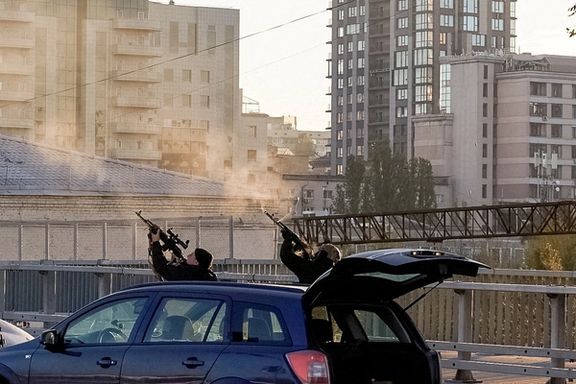
A US military official says Russia has used most of its ammunition in its war against Ukraine and it has now turned to decades-old ammo.

A US military official says Russia has used most of its ammunition in its war against Ukraine and it has now turned to decades-old ammo.
Speaking on condition of anonymity, the official said Monday that Moscow burns through its stockpiles to carry out its nearly 10-month-old invasion of Ukraine, but the old ammunition have a high failure rate.
“They have drawn from (Russia's) aging ammunition stockpile, which does indicate that they are willing to use that older ammunition, some of which was originally produced more than 40 years ago,” added the official.
The United States accuses Russia of turning to Iran and North Korea for more firepower as it exhausts its regular supplies of ammunition.
According to the senior military official, Russia would burn through its fully serviceable stocks of ammunition by early 2023 if it did not resort to foreign suppliers and older stocks.
Iran last month acknowledged it had supplied Moscow with drones, but said they were sent before the war in Ukraine.
The United States in mid-November imposed sanctions on companies and people being involved in the production or transfer of Iranian drones to Russia.
The EU foreign ministers on Monday hit out at Iran for supplying drones to Russia, saying the weapons are being used indiscriminately by Russia against Ukrainians.
Last month, the EU imposed sanctions on the chief of Iran’s Revolutionary Guard, the IRGC’s Aerospace Force and a company making drones.

A confidential document from Lloyds Marine insurance company has revealed the Islamic Republic’s illegal schemes through Venezuela to finance Lebanon’s Hezbollah.
In a confidential warning to its clients seen by Iran International, London-based Lloyds Marine Insurance Company said that the Quds Force of the Islamic Revolutionary Guard Corps and Hezbollah illegally send gold from Venezuela to Iran to finance the terrorist activities of Tehran-backed militias in Lebanon, bypassing sanctions.
The document issued on October 28 is titled: Illicit trade and transfer of gold and Iranian oil – IRGC Quds Force and Hezbollah.
“The purpose of this e-alert is to inform the market of the illicit shipment of gold by the Quds Force of the Islamic Revolutionary Guard Corps (IRGC) and Hezbollah from Venezuela to Iran to raise funds for terrorist activities, facilitated by the sale of Iranian oil, in contravention of sanctions,” reads the letter.
Lloyds further added that flights from Caracas to Tehran via Mahan Air are being used as an illicit channel to ship gold to pay for Iranian oil, in breach of applicable sanctions.
Mahan Air is a privately owned Iranian airline linked to the IRGC sanctioned by US Treasury’s Office of Foreign Assets Control (OFAC) for weapons transfers.
“The gold is then sold in Turkey, and other Middle Eastern countries, to generate funds for terrorist activity,” the leaked document alleged.
Lloyds also identifies some people who have been easing the illegal shipment of gold from Venezuela on behalf of the IRGC Qods Force.
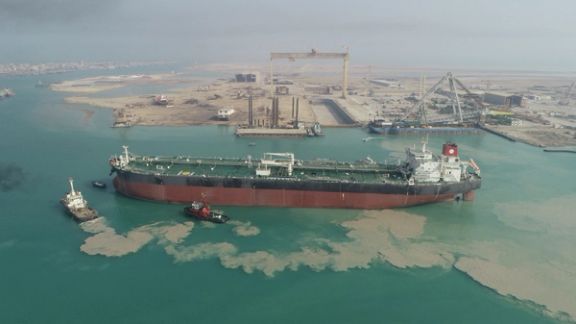
The first actor, according to Lloyds, is Hezbollah’s representative in Iran Ali Kassir, who is also a US OFAC designee under the SDGT program (Global Sanctions Regulation against Terrorism).
The other is Muhammad Jaafar Kassir, who is a senior Hezbollah official also designated by OFAC for his illegal activities linked with the militant group.
The Iranian airline Mahan Air is introduced as the third actor in the unlawful acquisition and shipment of gold from Venezuela on behalf of the IRGC Quds Force.
World’s largest marine insurance company has also called on its clients to observe enhanced due diligence measures if any of the entities mentioned are involved, as the coverage provided could indirectly expose the managing agents to risks of terrorist financing, money laundering and tax evasion.
US former Special Representative for Venezuela, Elliot Abrams for the first time in April 2020 announced that Iran is receiving gold for sending gasoline to Caracas.
Iranian officials denied receiving payment for fuel shipped to Venezuela by that time. However, Yahya Rahim-Safavi, a top Revolutionary Guards officer, who is Supreme Leader Ali Khamenei's advisor in military affairs, told state media later in 2020 that “We gave gasoline to Venezuela and received gold bullion and we brought the gold with airplanes to Iran to prevent any incident during transit.”
Argentina grounded an Iran-linked Venezuelan Boeing 747 cargo plane on June 12, 2022 after it landed in Buenos Aires without any prior announcements.
Washington on August 3 asked permission to confiscate the plane impounded in Argentina on suspicions of links to international terrorist groups.
Based on revealed documents, there are other airplanes that are used for taking gold from Caracas to Tehran, but the seizure and future confiscation of the Boeing, which is already in Ezeiza airport in Buenos Aires, is a major step to erode Hezbollah’s economic resources.
The illegal gold sale operation revealed by the Lloyd’s company was also facilitated by a fixer called Seyed Badroddin Naiemael Moosavi.
The 47-year-old Iranian businessman controlled the load of gold that he obtained at a discounted price in exchange for the oil shipments to Venezuela. He was the person, who sold the golds on the black market in Turkey, and as a result millions of dollars were used to finance Hezbollah’s terrorist acts in the Middle East.
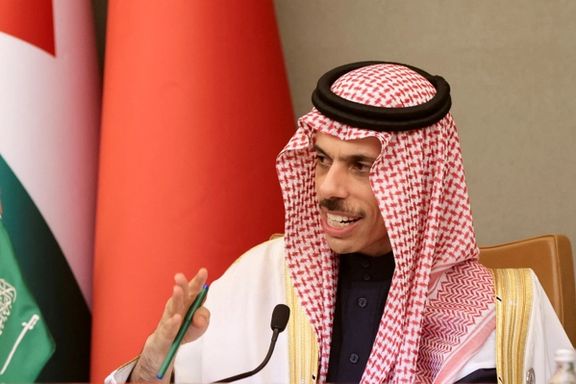
Saudi Arabia's foreign minister said Sunday that Iran's Persian Gulf Arab neighbors would act to shore up their security if Tehran were to obtain nuclear weapons.
Indirect US-Iranian talks to salvage a 2015 nuclear pact between global powers and Iran, which Washington exited in 2018, stalled in September. The UN nuclear chief has voiced concern over a recent announcement by Tehran that it was boosting enrichment capacity.
Iran reportedly has amassed enough 60-percent enriched uranium that if it decides to purify the fissile material further, it could be sufficient for at least one nuclear bomb.
"If Iran gets an operational nuclear weapon, all bets are off," Prince Faisal bin Farhan Al Saud said in an on-stage interview at the World Policy Conference in Abu Dhabi when asked about such a scenario.
"We are in a very dangerous space in the region...you can expect that regional states will certainly look towards how they can ensure their own security."
The statement came shortly after the visit of China’s President Xi Jinping to Saudi Arabia. Riyadh is seen trying to reduce its reliance on the United States. Reports last year said that Saudi Arabia appears to be building ballistic missiles with Chinese help.
The nuclear talks have stalled with Western powers accusing Iran of raising unreasonable demands, and focus shifting to the Russia-Ukraine war as well as domestic unrest in Iran over the death in custody of 22-year-old Mahsa Amini.
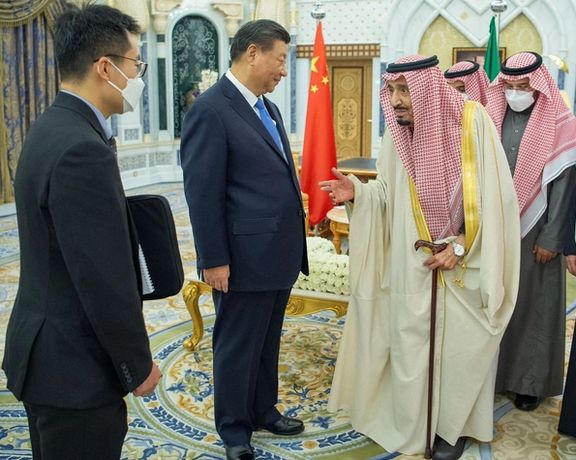
Though Riyadh remained "skeptical" about the Iran nuclear deal, Prince Faisal said it supported efforts to revive the pact "on condition that it be a starting point, not an end point" for a stronger deal with Tehran.
Sunni-ruled Gulf Arab states have pressed for a stronger agreement that addresses their concerns about Shi'ite Iran's missiles and drone program and network of regional proxies.
"The signs right now are not very positive unfortunately," Prince Faisal said.
"We hear from the Iranians that they have no interest in a nuclear weapons program, it would be very comforting to be able to believe that. We need more assurance on that level."
Iran says its nuclear technology is solely for civil purposes, but its policy of enriching uranium to 60 percent has no civilian use and only a short step away from bomb-level purity of 90 percent.
A senior Emirati official said on Saturday that there was an opportunity to revisit "the whole concept" of the nuclear pact given the current spotlight on Tehran's weapons with Western states accusing Russia of using Iranian drones to attack targets in Ukraine. Iran and Russia deny the charges.
Anwar Gargash, the diplomatic advisor to the president of the UAE, reiterated a call for "explicit" security assurances from traditional Western allies, especially in dealing with the threat from Iranian drones that Gulf states have long warned about.
It was not until these weapons "made it into the Ukraine theatre" that they were "catapulted" into the spotlight, and "suddenly the world rediscovered this issue", Gargash said.
"This is an opportunity for all of us to come and revisit the whole concept," Gargash said, referring to the Iran nuclear pact.
With reporting by Reuters
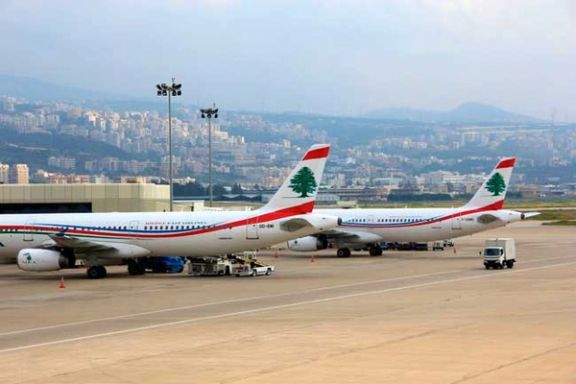
Israel has reportedly threatened to bomb Beirut’s airport if it is used by the Iranian regime to smuggle weapons.
London-based Asharq Al-Awsat quoted on Saturday some political sources in Tel Aviv as saying that Israel will not be lenient with the transport of Iranian weapons through Beirut airport, warning to launch military strikes if the airport is used for Iranian ammo deliveries.
Israel was informed of a report broadcast by “Al-Arabiya Channel” about the Islamic Republic’s plans to use a new smuggling route for its weapons through Beirut after the failure of the Damascus corridor, sources told the daily.
They also added that Israel has launched a probe into Tehran’s attempt to smuggle weapons through civilian flights to Beirut airport.
Asharq Al-Awsat said they have also confirmed that Israel’s air raids on Syria in recent years helped prevent smuggling of Iranian weapons to its armed militias in Syria and in Lebanon.
This comes after a visit made by Hezbollah leader Hasan Nasrallah to Syria where he met Syrian President Bashar Assad two weeks ago.
The sources say Nasrallah discussed the difficulties faced by the Islamic Republic and Hezbollah in Syria because of the Israeli strikes there.
Israel has in recent months intensified strikes on Syrian airports and air bases to disrupt Iran's increasing use of aerial supply lines to deliver arms to allies in Syria and Lebanon including Lebanon's Hezbollah.
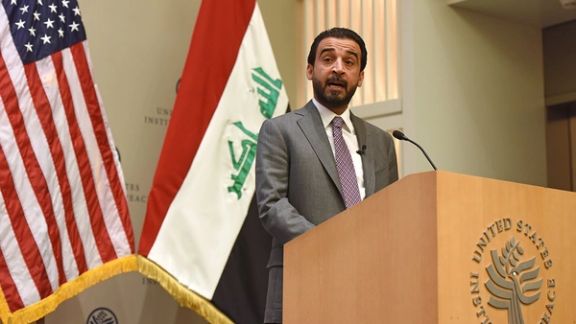
Iraq’s parliament speaker has recently confirmed that hundreds to thousands of people who went missing from 2014 to 2016 were kidnapped and killed by Iran-backed militias.
Speaker of the Council of Representatives Mohamed Al-Halbousi said in an interview with a local Iraqi TV December 7, that "We must tell people who these disappeared people are,” confirming that they are slain.
There were reports by Amnesty International in 2016 that Iraqi government forces and paramilitary militias tortured, arbitrarily detained, forcibly disappeared and executed thousands of civilians who had fled the rule of the Islamic State (ISIS) militant group. No official had ever confirmed the allegations.
Al-Halbousi said "the state must do justice to their families and include them in the list of victims of terrorism, and they should be considered for compensation,” adding that the government had been misleading their families since 2014. It would not be right to give their families false hope of their return, he said, noting that they were abducted and assassinated.
A member of parliament from the party led by al-Halbousi said, “Everyone knows that they are dead, but for years no one dares to be frank with people, especially the wives, mothers, and children of the victims.”
The Iraqi Observatory for human rights issued a statement in which it considered al-Halbousi's remarks as "an official announcement of their execution at the hands of armed militias during the expulsion of ISIS from Iraq."
According to the Amnesty report, Shia paramilitary groups and Iraqi government forces carried out revenge attacks on Sunni Arabs suspected of supporting ISIS, as Iraqi and Kurdish forces backed by US-led coalition began the battle for Mosul in August 2014. It added that Baghdad – which was especially close to the Islamic Republic at the time -- was complicit in "brutal revenge attacks" as thousands of older boys and men were rounded up, tortured and extrajudicially executed.
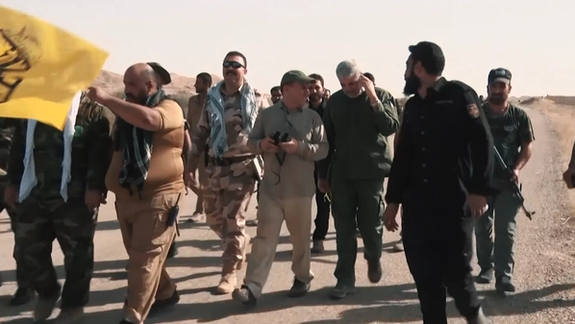
Numerous militia groups, most notably Hezbollah Brigades Asa'ib Ahl al-Haq, Badr, Kata'ib Sayyid al-Shuhada, Imam Ali, al-Khorasani, and Harakat Hezbollah al-Nujaba, are accused of being behind the mass killings. These militias were brought under the umbrella of the Popular Mobilization Units (PMU) in June 2014 and officially designated as part of the Iraqi armed forces in February 2016, but even before that they had enjoyed government support and backing.
“PMU militias have been responsible for a pattern of cases of enforced disappearance, abductions, torture and unlawful killings of captured and detained individuals in a climate of impunity,” the report said, adding that “Iraqi government forces have also directly committed violations including arbitrary detention, torture, unlawful killings and enforced disappearances.”
The number of victims is estimated at more than 22,000 from the cities of northern and western Iraq. Amnesty did not provide a total but said that “tens of thousands have been forcibly displaced.”
The report claimed that ISIS atrocities, armed conflict and insecurity led to the displacement of some 4.2 million civilians. Many fled with little more than the clothes on their backs, setting off at night to avoid detection and walking for hours.
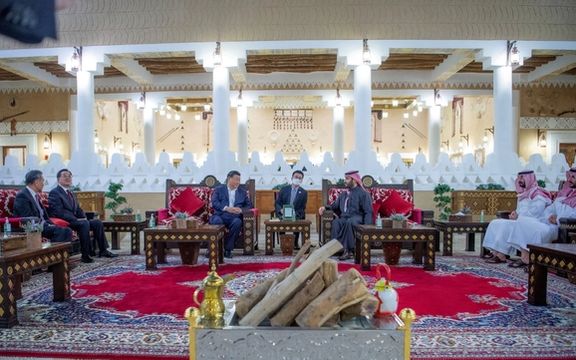
A joint statement at the end of Chinese President Xi Jinping’s visit to Saudi Arabia has led to a strong backlash by Iranians who read it as betrayal by Beijing.
In the statement, the Gulf Cooperation Council and the Chinese side made a reference to three small islands in the Persian Gulf that Iran took over as its historic territory in 1971 but the United Arab Emirates claims as its own.
After Britain withdrew its forces from the region and decided to give independence to the small Arab littoral Sheikdoms, Iran’s Mohammad Reza Shah decided to take over the Greater and Lesser Tunbs and Abu Mousa. The UAE was just being formed and there was a serious political and military vacuum on the Arab side of the Persian Gulf.
Among other things, the concluding statement of the meeting that was attended by GCC dignitaries as well as the visiting Chines President Xi Jinping said: "The leaders affirmed their support for all peaceful efforts, including the initiative and endeavours of the United Arab Emirates to reach a peaceful solution to the issue of the three islands; Greater Tunb, Lesser Tunb, and Abu Musa, through bilateral negotiations in accordance with the rules of international law, and to resolve this issue in accordance with international legitimacy."
The Iranian official news agency did not translate this part of the statement in its report about the GCC meeting, but Iranians on social media were already harshly criticizing their government for a major failure. They asked the clerical rulers, what exactly went wrong that its ally, China acquiesced to such a statement.
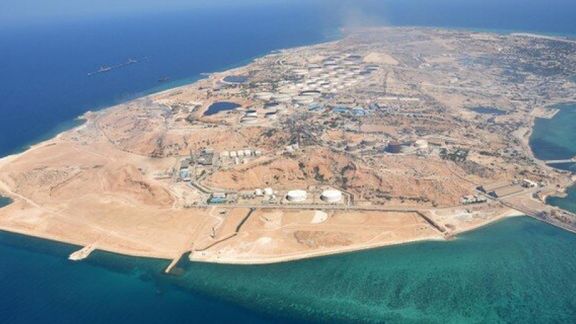
Later on Saturday, Tehran had no choice but to start to react. Iran's Foreign Minister Hossein Amir-Abdollahian wrote in a tweet: "The three Persian Gulf islands are inseparable parts of Iran and are part of the eternal belongings of our motherland. We firmly insist on the need for respecting Iran's territorial integrity." The foreign ministry also invited the Chinese ambassador in Tehran to a meeting and expressed its displeasure about the statement.
The opponents of the Islamic Republic have been arguing for decades that Tehran should establish normal relations with the West and not isolate itself relying on meagre support from China and Russia. Now, these critics found the perfect example to slam the government for putting itself in this latest humiliating position.
Following the issuance of the statement, former Iranian diplomat Abdolreza Faraji Rad told Entekhab news website in Tehran: "It is unlikely that China would be the same for Iran following this statement. I have never imagined before that China would ever take a step against Iran's interests."
Faraji Rad added: "If this trend in China's behavior continues, in less than a decade, China will cause as much as concern for Iran as America does." The former diplomat also said: "It appears that China has given up its 25-year cooperation deal with Iran."
Foreign policy commentator Diako Hosseini tweeted: "Xi Jinping's contribution to the GCC statement about the three islands was an unfriendly behavior against Iran's territorial integrity and against China's claim of not interfering with the internal affairs of other countries. Summoning China's ambassador to the Foreign Ministry and demanding an official apology is the least that should be done."
However, foreign Policy analyst Amir Ali Abolfath tweeted that "warm relations between Saudi Arabia and China will serve Iran's interests if it leads to a reduction in US influence in Saudi Arabia."
Iranian journalist Sadra Mohaqeq wrote: "Iran's official stance about the ownership of the three islands has always been that Iran's ownership of the islands cannot be questioned. Calling on Iran to negotiate about this non-negotiable issue is a direct intervention in Iran's internal affairs and undermines Iran's territorial integrity."
Iranian analyst Ali Hossein Ghazizade wrote in a tweet: "The three Persian Gulf islands have been the subject of the most important security threats against Iran in recent decades. The Chinese, as the Islamic Republic's strategic allies did not stand by Iran. Do people still believe that Iran's territorial integrity will be preserved with such allies?"